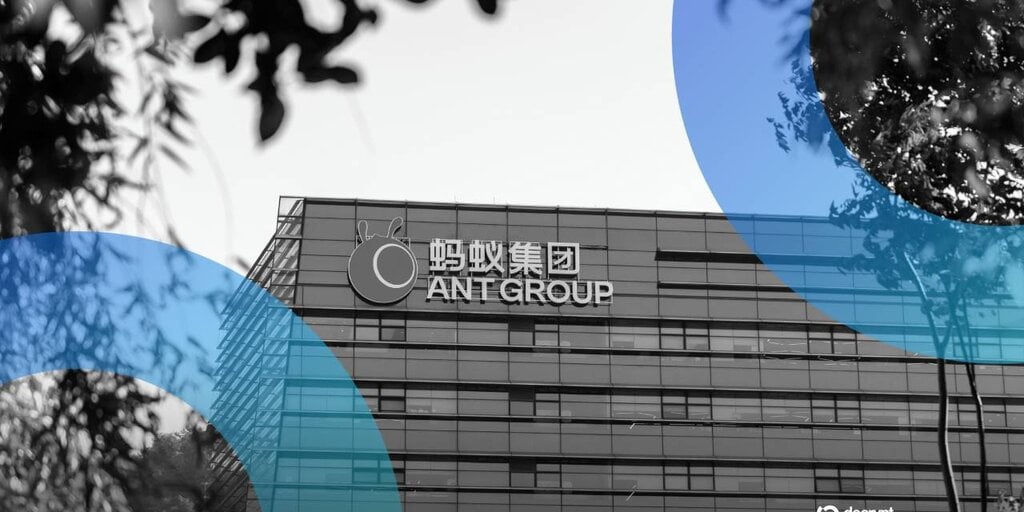In brief
Ant Group has filed to register the “ANTCOIN” trademark in Hong Kong, covering digital wallets, online payments, and stablecoin services.
The filing follows the group’s recent crypto and blockchain initiatives, including USDC payment pilots and energy asset tokenization.
Observers say the move is being done to “protect” the group’s interest and manage risk as it looks to secure a presence in Hong Kong.
Ant Group, China’s largest internet finance company, is reportedly laying the groundwork for a return to digital assets.
The tech giant has applied in Hong Kong to register a series of trademarks related to virtual assets, stablecoins, and blockchain technologies, including one for “ANTCOIN,” according to a Monday report from Hong Kong Economic Times, citing public filings.
In one application filed with Hong Kong’s Intellectual Property Department in June, found and seen by Decrypt, a broad scope of financial and digital-asset services under the proposed ANTCOIN mark is listed.
The filing includes registrations for providing online payments, electronic wallets, foreign exchange, and the issuance and transfer of stablecoins and digital tokens. It remains pending before the registry.
Decrypt reached out to Ant Group to confirm the status and scope of its Hong Kong trademark applications but did not immediately receive a response.
The group’s decision to file for trademarks such as ANTCOIN appears as a “strategic move to protect their interests” in Hong Kong’s burgeoning virtual asset sector, Joshua Chu, lawyer, lecturer, and co-chair of the Hong Kong Web3 Association, told Decrypt.
“Although recent regulatory developments from Beijing have put their stablecoin ambitions on ice, retaining IP rights ensures Ant can defend its brand,” Chu said.
Earlier this month, Beijing reportedly ordered major tech firms, including Ant Group, to suspend their stablecoin-related initiatives in Hong Kong.
Ant Group’s next move would depend on how it goes about with “sorting out issues” which have “caused their ambitions to be iced in the first place,” Chu said.
Chu warned that there have been cases “where unauthorized or fraudulent tokens masquerade as USDT” without actually being issued by Tether. Other scammers, for instance, “have created tokens on various blockchains that use similar names, symbols, or contract addresses” to appear legitimate.
There are also “high-fidelity copycat contracts” that can deceive users into believing they hold genuine stablecoins, he added. Such operations are among the risks that stablecoin players like Ant Group who may be looking to open business in Hong Kong would face.
“Trademark protection is a prudent and essential part of risk management,” he added.
Ant Group and crypto
Co-founded by Chinese serial entrepreneur Jack Ma, Ant Group has been steadily adopting blockchain and digital asset infrastructure as part of its broader shift to financial tech.
In July, Ant Group worked with Circle, a public U.S. company, to pilot USDC-based cross-border payments between Ant International’s Alipay+ network and select global merchants, in one of the first integrations of a regulated stablecoin into its payment rails.
A month later, the group dismissed rumors that it was working with China’s central bank on a rare earth-backed RMB stablecoin.
In September, its Ant Digital Technologies unit unveiled a blockchain platform to tokenize energy assets in China, linking roughly $8 billion worth of infrastructure to on-chain systems.
Daily Debrief Newsletter
Start every day with the top news stories right now, plus original features, a podcast, videos and more.













